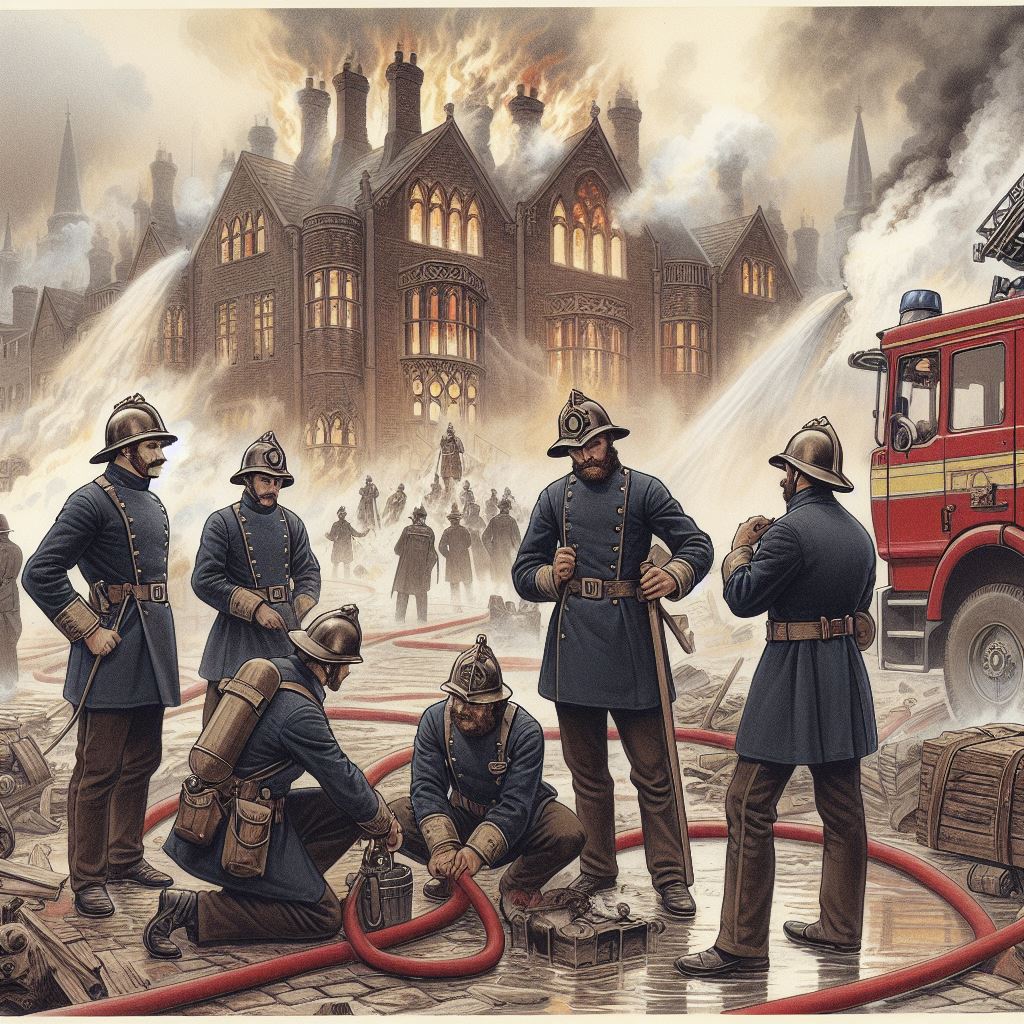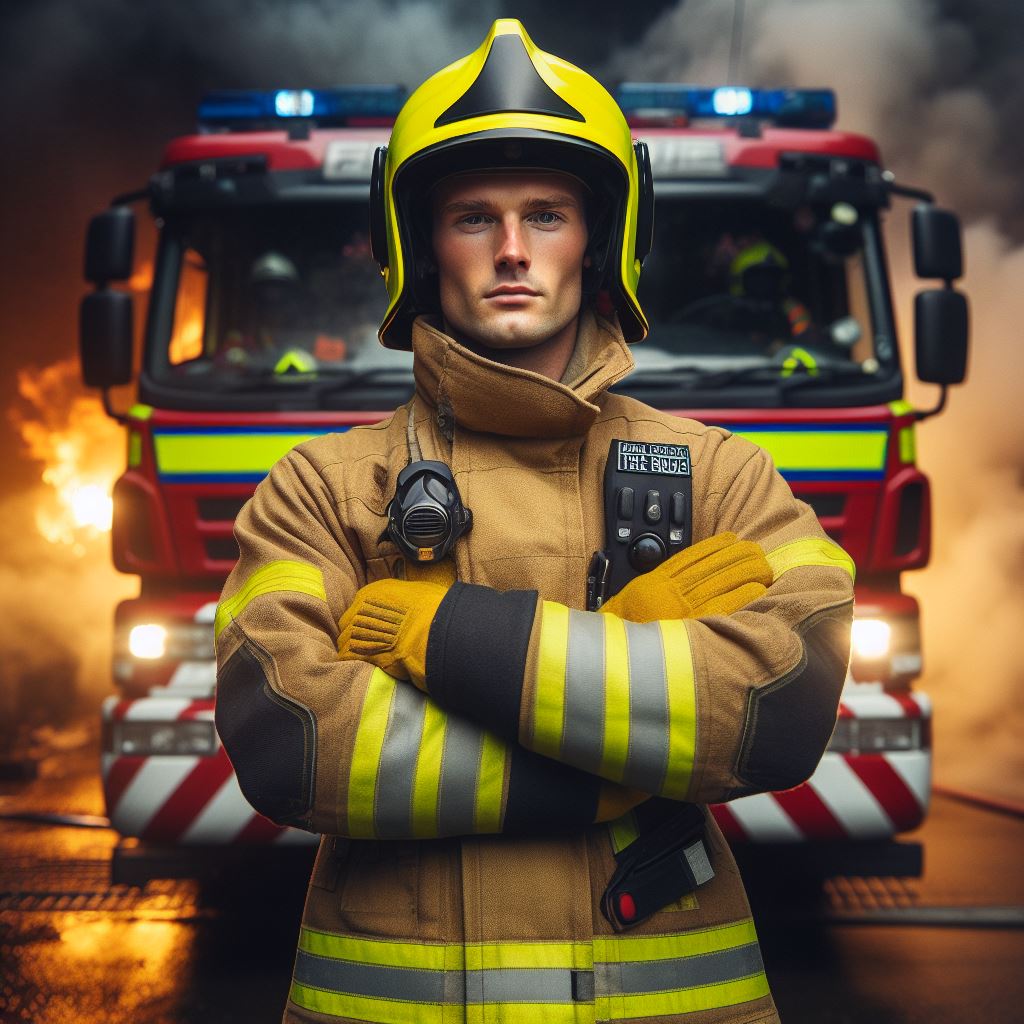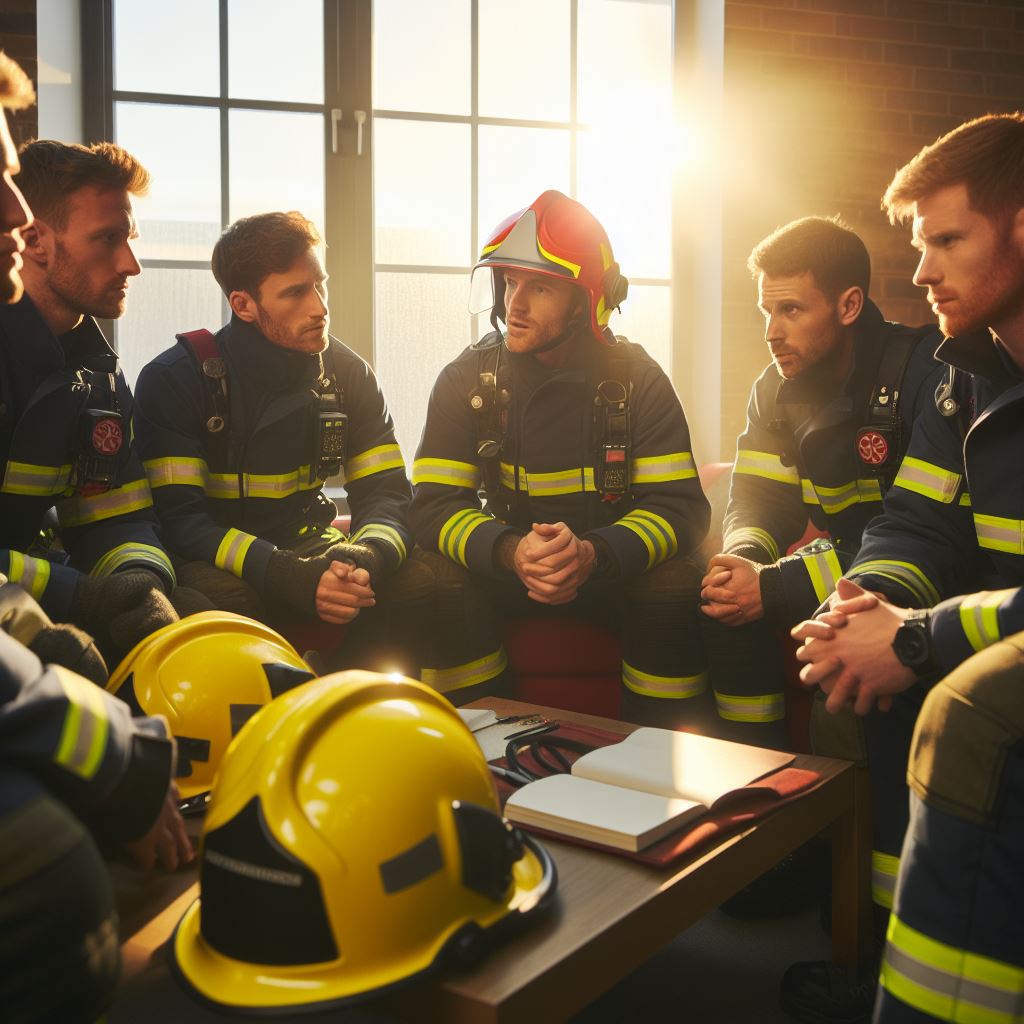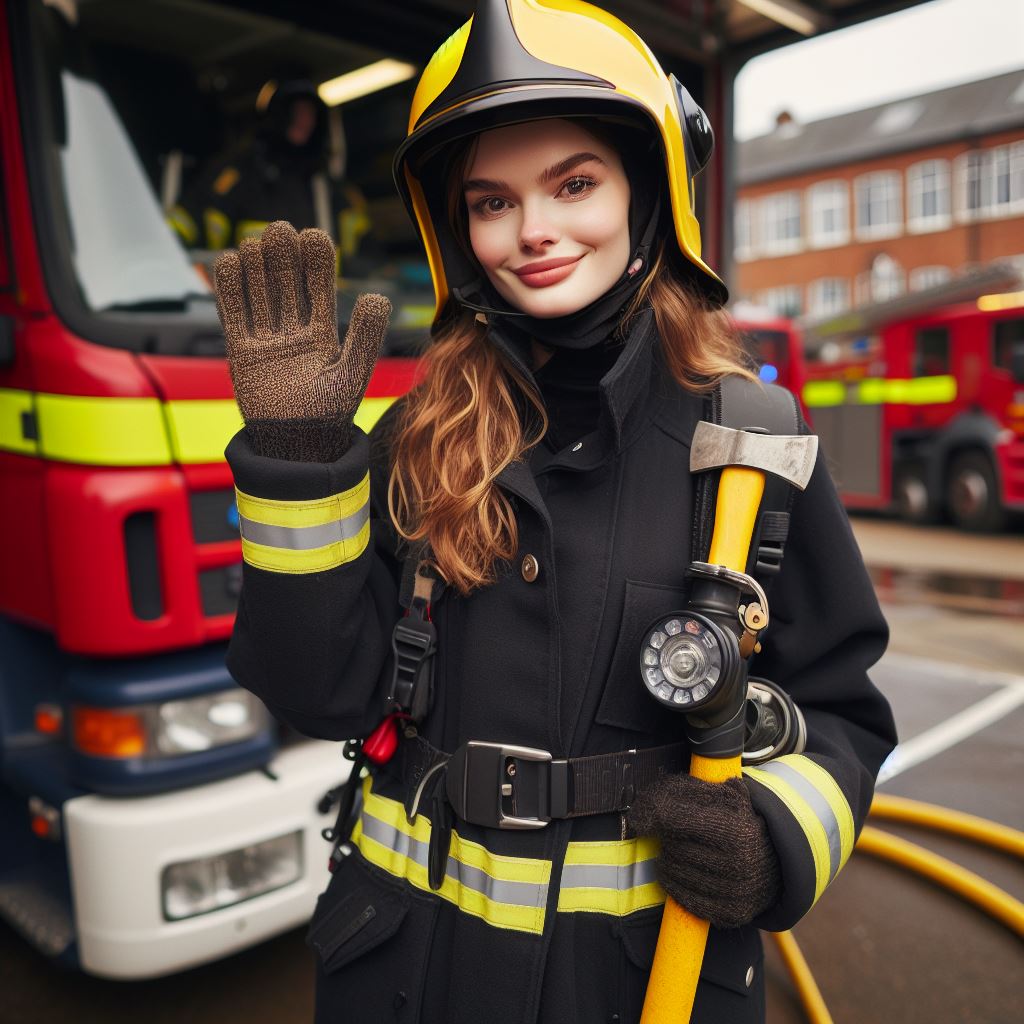Introduction
A. Brief Introduction to UK Firefighter Training
Firefighter training in the UK is an intense process, demanding dedication, physical prowess, and mental resilience.
Aspiring firefighters navigate a challenging path to become the unsung heroes who protect communities.
B. Importance of Firefighters in Ensuring Public Safety
- Firefighters stand as frontline guardians, safeguarding lives during emergencies.
- Beyond firefighting, they respond to diverse crises, from road accidents to chemical spills.
- Their role extends to educating communities on fire prevention, enhancing overall safety.
- Firefighters are integral to disaster management, ensuring rapid and effective response strategies.
- The public relies on them during the most vulnerable moments, emphasizing their paramount importance.
This blog section unveils the layers of commitment and skills required in UK firefighter training, shedding light on the valorous profession dedicated to public safety and the protection of lives and properties.
Overview of UK firefighting
A. The role and responsibilities of firefighters in the UK
Firefighting is an essential part of public safety in the UK, with well-established training programs.
Firefighters in the UK play a crucial role in protecting lives and property during emergencies.
Their responsibilities include responding to fires, accidents, and other emergencies promptly and effectively.
Firefighters also carry out rescue operations and provide assistance to those in need during crises.
B. Overview of the firefighting system and structure in the UK
- The UK’s firefighting system ensures prompt emergency response through local fire and rescue services overseen by Chief Fire Officers.
- Regionally organized services train skilled firefighters in comprehensive programs covering fire prevention, hazardous materials, and technical rescue.
- Becoming a firefighter requires meeting strict criteria, undergoing assessments, and succeeding in a competitive selection process.
- Training combines classroom instruction and practical exercises, encompassing fire behavior, building construction, equipment use, first aid, communication, and teamwork.
- Upon completion, firefighters join station crews, always on call for emergencies, including physically demanding tasks in hazardous conditions.
In general, firefighting in the UK is a well-structured and highly-trained profession. Firefighters play a vital role in safeguarding lives and property, often putting their safety at risk.
Their commitment to public safety and their ongoing training ensures that they are always prepared to respond to emergencies effectively.
Read: Firefighting Gear: What UK Firefighters Wear
Eligibility Criteria for Becoming a Firefighter in the UK
To become a firefighter in the UK, certain requirements must be met.
1. Age requirements
Applicants must be at least 18 years old to apply for firefighter training in the UK.
These criteria are in place to ensure that only suitable candidates are selected for training.
The age requirements for becoming a firefighter in the UK are straightforward. Applicants must be at least 18 years old to be eligible to apply.
This ensures that individuals who are physically and mentally mature enough to handle the demands of the job are considered.
Personalized UK Career Consulting
Receive tailored career guidance designed just for you. Get actionable steps and expert support to boost your career in 1-3 days. Take control of your career now.
Get Started2. Fitness standards and physical fitness tests
As firefighting is a physically demanding job, applicants must meet certain fitness standards and pass physical fitness tests.
In addition to age requirements, fitness standards and physical fitness tests are an important part of the application process.
Firefighting can be physically demanding, so applicants must demonstrate that they have the necessary physical fitness to carry out the duties of the job.
3. Educational qualifications
While there are no strict educational requirements, having GCSEs in subjects like math and English can be advantageous.
Applicants with GCSEs in subjects like math and English may have a higher chance of being selected for training.
These subjects are considered important as firefighters must be able to understand and apply numerical and written information accurately.
4. Residency and citizenship requirements
Applicants must be a residents of the UK and have the right to work in the country.
Residency and citizenship requirements are also essential for those wishing to become firefighters in the UK.
Applicants must be residents of the UK and have the right to work in the country.
This requirement ensures that individuals who commit the UK and its communities are considered for training.
5. Background checks and vetting process
- Before being accepted into firefighter training, applicants must undergo background checks and a vetting process.
- Background checks and a vetting process are conducted to ensure that applicants have a suitable character and background for the job.
- This includes checks for criminal records and other relevant information.
- The purpose of these checks is to ensure the safety and integrity of the firefighting profession and maintain public trust.
In review, becoming a firefighter in the UK requires meeting certain eligibility criteria.
These criteria include age requirements, fitness standards, educational qualifications, residency and citizenship requirements, as well as background checks and a vetting process.
To enhance their chances of selection, aspiring firefighters must be aware of and fulfill these criteria for training.
Read: A Day in the Life of a UK Firefighter
Your Dream Job Starts with a Perfect CV
Get a tailored CV and cover letter that captures your unique strengths and stands out in your industry. Let us help you make an unforgettable first impression.
Get Started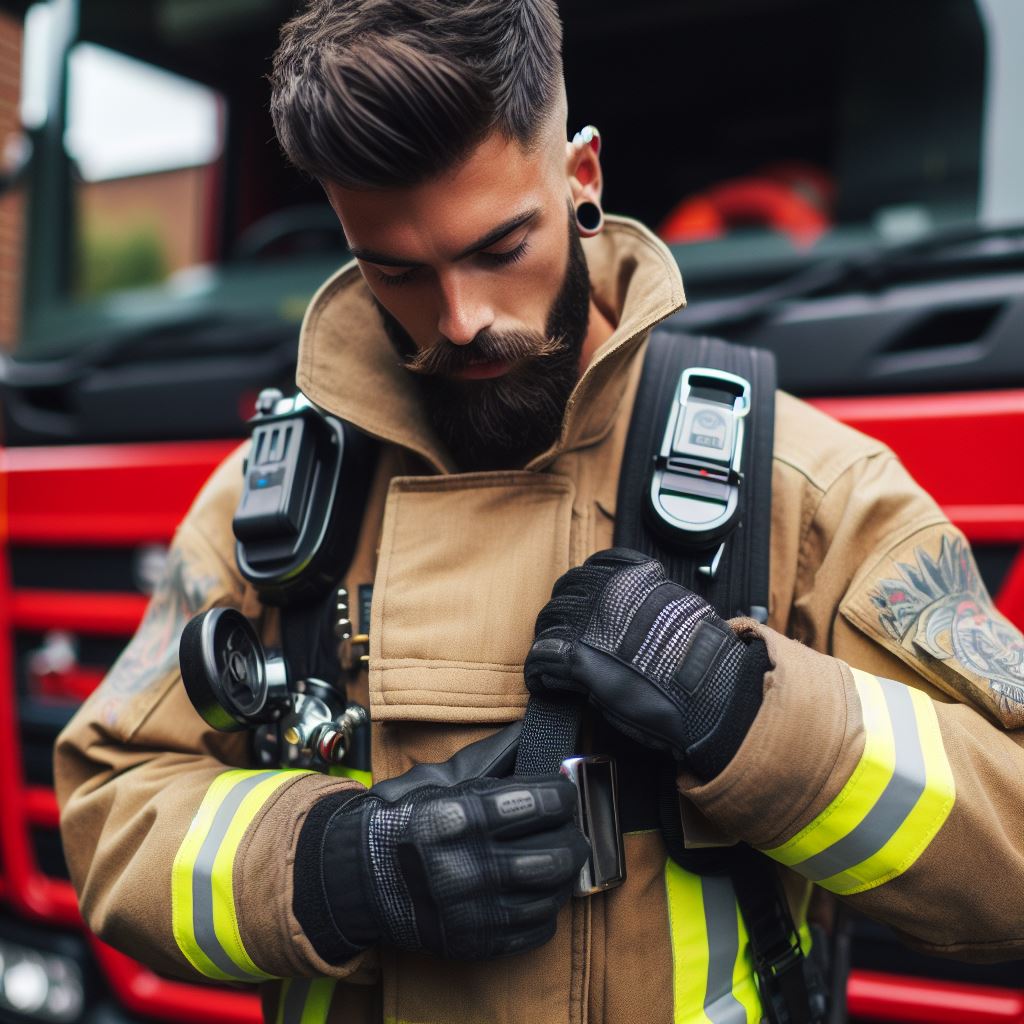
Training Process for UK Firefighters
A. Duration and Format of the Training
The training process for UK firefighters is comprehensive and rigorous, typically lasting around 18 to 24 weeks.
The format of the training is a combination of classroom-based learning and practical hands-on exercises.
B. Firefighter Training Colleges and Academies in the UK
The UK has several renowned firefighter training colleges and academies that provide specialized training programs.
These institutions ensure that aspiring firefighters receive the necessary knowledge and skills to perform their duties effectively.
C. Theoretical and Practical Components of the Training
Firefighters undergo training that covers theoretical and practical components, ensuring they acquire a comprehensive skill set for their duties.
The theoretical component covers subjects such as fire behavior and control, search and rescue techniques, hazardous materials management, first aid, and operational procedures.
The practical component involves putting the theoretical knowledge into action through simulated firefighting scenarios.
D. Training Modules and Topics Covered
- Fire Behavior and Control: Firefighters learn about how fires start, spread, and interact with different materials.
- Search and Rescue: Techniques for locating and rescuing individuals trapped in various situations, including collapsed buildings and confined spaces.
- Hazardous Materials: Training on handling and responding to incidents involving dangerous substances, including chemical spills and gas leaks.
- First Aid: Basic medical training to provide immediate care to injured individuals at the scene of an emergency.
- Operational Procedures: Training on firefighting protocols, including incident command systems and communication techniques, is essential for effective operations.
- Fire Suppression Techniques: Training on using firefighting equipment such as hoses, extinguishers, and ventilation techniques to control and extinguish fires.
- Fire Safety and Prevention: Education on fire safety measures, smoke alarms, and fire prevention strategies to reduce the risk of fires in the community.
Throughout the training process, firefighters also develop physical fitness, teamwork, and communication skills.
In a nutshell, becoming a UK firefighter requires dedication, extensive training, and a commitment to ensuring public safety.
The training process prepares firefighters for the challenges they may face in the line of duty and equips them with the necessary knowledge and skills to respond effectively to emergencies.
By completing the training, firefighters enter a noble profession where they play a crucial role in protecting lives, property, and the environment.
Read: Mental Health Support for Police in the UK
Discover More: Retirement Plans of UK Politicians Explored
Certification and Qualifications
A. After completing the training, firefighters receive a qualification certificate
Upon completing firefighter training, authorities award individuals a certificate qualifying them as firefighters.
Optimize Your LinkedIn for Success
Boost your LinkedIn profile with a professional bio, keyword-rich headline, and strategic recommendations that attract recruiters. Stand out from the crowd and get noticed.
Optimize NowThis certification serves as proof of their competency and readiness to carry out firefighting duties.
It signifies that they have acquired the knowledge and skills necessary to handle emergencies effectively.
B. Possibility of additional training and specializations in specific areas
Firefighters have the opportunity to undergo further training to specialize in specific areas.
While basic firefighter training equips individuals with general skills and knowledge, there are often opportunities for firefighters to undergo additional specialized training.
This enables them to enhance their expertise in specific areas such as hazardous materials, technical rescue, or wildland firefighting.
These specialized skills make firefighters more versatile and better equipped to handle diverse emergency scenarios.
C. Continuous professional development opportunities for firefighters
- Firefighters are provided with continuous professional development opportunities throughout their careers.
- Firefighting is a profession that requires ongoing learning and development.
- Encourage firefighters to stay updated on the latest techniques, technologies, and best practices through continuous professional development.
- This may include attending workshops, conferences, and training sessions to enhance their knowledge and skills.
- By constantly evolving and expanding their capabilities, firefighters remain prepared to face new challenges and effectively respond to emergencies.
You Might Also Like: Inside a UK Embassy: Roles and Responsibilities
Challenges and Demands of Firefighter Training
Firefighter training is a demanding and challenging process that requires individuals to possess exceptional physical and mental abilities.
The rigorous training prepares firefighters for the demanding tasks they will face in their profession.
A. Physical and Mental Demands of Training
Firefighter training involves intense physical activities such as running, climbing, and carrying heavy equipment.
Mental toughness is equally important, as firefighters must stay focused and make split-second decisions in high-pressure situations.
B. High Levels of Discipline and Dedication Necessary for Success
Firefighters must embrace discipline and dedication. They need to adhere to strict schedules, follow protocols, and maintain physical fitness.
They must commit themselves to lifelong learning and continuous improvement to keep up with evolving techniques and technologies.
C. Coping with Stressful Situations and Traumatic Experiences
Firefighters often find themselves in highly stressful and traumatic situations, such as rescuing people from burning buildings or dealing with life-threatening emergencies.
Training helps firefighters develop coping mechanisms and resilience to deal with the emotional toll of these experiences.
D. The Importance of Teamwork and Communication Skills
- Firefighting is a team activity, and effective teamwork is crucial for success. During training, firefighters learn to work seamlessly with their colleagues.
- Clear and concise communication is vital, as it ensures that tasks are executed efficiently and prevents misinterpretation of information.
All in all, the challenges and demands of firefighter training are significant, but necessary to ensure that firefighters are well-prepared for their roles.
Physical and mental resilience, discipline, dedication, and effective teamwork and communication skills are essential to succeed in this noble and vital profession.
Read: Specialist Roles within UK Police Departments
Conclusion
UK firefighter training plays a crucial role in maintaining public safety. Firefighters undergo rigorous training to acquire the necessary skills and knowledge to effectively respond to emergencies.
We must appreciate the commitment and sacrifice that firefighters make in their line of duty. They put their lives at risk to ensure the safety of others.
If you are interested in pursuing a career as a firefighter, I highly encourage you to do so.
It is a noble profession that allows you to make a significant impact on your community and help save lives.
By undergoing the required training and displaying the necessary qualities, you can become a valuable asset to the firefighting team and contribute to ensuring public safety in the UK.
Remember, being a firefighter requires courage, dedication, and a genuine passion for helping others.
If this resonates with you, take the first step toward your firefighting career today.
[E-Book for Sale]
500 Cutting-Edge Tech Startup Ideas for 2024 & 2025: Innovate, Create, Dominate
$19.99 • 500 Tech Startup Ideas • 62 pages
You will get inspired with 500 innovative tech startup ideas for 2024 and 2025, complete with concise descriptions to help you kickstart your entrepreneurial journey in AI, Blockchain, IoT, Fintech, and AR/VR.

